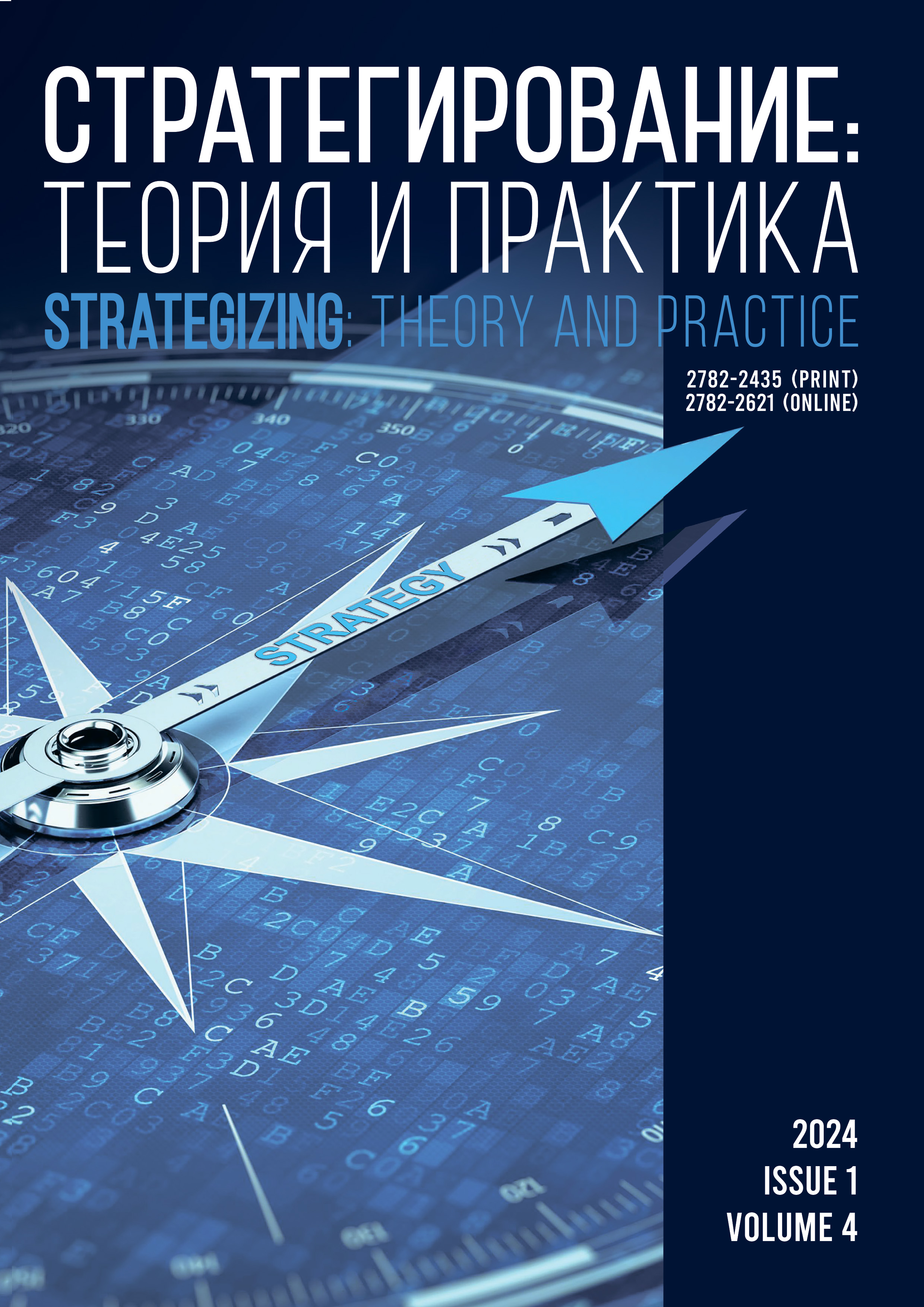Moscow, Moscow, Russian Federation
Socio-economic development is a vital strategy for the Russian Federation. In the 33 years after the collapse of the Soviet Union, its gross domestic product (GDP) has increased by approximately 20 %. The average GDP in EU countries has increased by halve for the same period. The US GDP has doubled while some post-socialist European countries have demonstrated a 2.5-time increase, not to mention developing countries (3-5 times) and China (12.7 times). Between 2013 and 2022, Russia’s GDP per capita stayed the same, probably because of the Crimea population. The gross fixed capital formations decreased slightly, and the volume of retail trade turnover and real income of the population went down more sharply. Compared to the Soviet period, Russia has been losing in all indicators of international ratings. Life expectancy, which is one of the main social indicators, keeps decreasing with every decade. In fact, it has been seven years since Russia’s population started to decline. Part one of this article examines the outstanding experience of China, Japan, and South Korea, which have transited from seemingly hopeless backwardness to stable economic and social growth in 30-40 years. However, these countries are so unique in their cultural and historical development that their experience cannot be applied to Russia directly. Part two examines the phenomena of Reaganomics in the USA and Thatcherism in the UK, which allowed each of these countries to overcome a decade of stagnation and crisis to resume socio-economic development based on science, technology, and innovations. Part three examines some cases of large countries that have demonstrated high growth rates over the past ten years despite complex situations in the global economy. The objective was to define the specific strategies these countries appealed to in order to combat the existing negative trends in economic development. The conclusion sums up the useful experience Russia can draw from the abovementioned cases. The author introduces a strategy for accelerated and sustainable socio-economic development of Russia though 2035.
world economy, strategy, socio-economic growth, crisis, gross domestic product, Reaganomics, Thatcherism.
1. Aganbegian AG. Russia’s future mostly depends on development of domestic financial system. Scientific Works of the Free Economic Society of Russia. 2019;215(1):170-194. (In Russ.)
2. Aganbegyan AG. On immediate actions to reinvigorate social and economic growth. Problems of Forecasting. 2019;172(1):3-15. (In Russ.)
3. Aganbegian AG. O preobrazovanii sotsialʹno-ehkonomicheskoy sistemy Rossii: chto khoteli i chto poluchilosʹ [On the transformation of the socio-economic system of Russia: what they wanted and what happened]. The World of Transformations. 2023;(2):17-44. (In Russ.)
4. Aganbegyan AG. About strategy of social and economic development and an orientation of social reforms in Russia. Economics of Contemporary Russia. 2009;(2):26-38. (In Russ.)
5. Aganbegyan AG. Tri glavnykh sotsialʹno-ehkonomicheskikh vyzova, stoyashchikh pered Rossiey, i 15 otvetnykh shagov [Three key socio-economic challenges Russia has to face and how to respond to them in 15 steps]. Economic Strategies. 2023;25(1):6-15. (In Russ.)
6. Bodrunov SD. Strategy of transition to a new world economic order and noosociety: Industrial aspect. Russian Journal of Industrial Economics. 2023;16(2):135-140. (In Russ.) https://doi.org/10.17073/2072-1633-2023-2-135-140
7. Bodrunov SD, Desai R, Friman A. Po tu storonu globalʹnogo krizisa: noonomika, kreativnostʹ, geopolitehkonomiya [Beyond the global crisis: noonomics, creativity, and geopolitical economy]. St. Petersburg: INIR im. S.Yu. Vitte; 2022. 368 p. (In Russ.)
8. Glazʹev SYu. Za gorizontom kontsa istorii [Beyond the horizon of the end of history]. Moscow: Prospekt; 2023. 416 p. (In Russ.)
9. Glazʹev SYu. Kitayskoe ehkonomicheskoe chudo. Uroki dlya Rossii i mira [Chinese economic miracle: Lessons for Russia and the world]. Moscow: Vesʹ Mir; 2023. 406 p. (In Russ.)
10. Glaziev SYu. National economy structures in the global economic development. Economics and Mathematical Methods. 2016;52(2):3-29. (In Russ.)
11. Glazʹev SYu. Rossiya v novykh tekhnologicheskom i mirokhozyaystvennom ukladakh [Leap into the future: Russia in the new technological and global economic structures]. Moscow: Knizhnyy mir; 2018. 765 p. (In Russ.)
12. Glazyev SYu. Seven scenarios for Russia. Strategic Priorities. 2017;13(1):101-105. (In Russ.)
13. Kvint VL. The global emerging market: strategic management and economics. Moscow: Biznes atlas; 2012. 627 p. (In Russ.)
14. Kvint VL, Bodrunov SD. Strategirovanie transformatsii obshchestva: znanie, tekhnologii, noonomika [Strategic transformation of society: knowledge, technology, and noonomy]. St. Petersburg: INIR im. S.Yu. Vitte; 2021. 351 p. (In Russ.)
15. Kvint VL, Okrepilov VV. Quality of life and values in national development strategies. Herald of the Russian Academy of Sciences. 2014;84(5):412-425. (In Russ.) https://doi.org/10.7868/S0869587314050107
16. Kvint VL, Khvorostyanaya AS, Sasaev NI. Advanced technologies in strategizing. Economics and Management. 2020;26(11):1170-1179. (In Russ.) https://doi.org/10.35854/1998-1627-2020-11-1170-1179
17. Lehndri Ch. Kreativnyĭ gorod [Creative city]. Moscow: Klassika-XXI; 2011. 397 p. (In Russ.)
18. Chuev SV, Afanasʹev VYa, Belokonev SYu, Grishaeva SA, Zotov VB, Konovalova VG, et al. Razvitie ehkonomicheskogo i promyshlennogo potentsiala rossiyskogo gosudarstva v usloviyakh tekhnologicheskoy blokady i sanktsiy Zapada: sovetskiy opyt i sovremennye resheniya [Development of the economic and industrial potential of the Russian state under the conditions of the technological blockade and sanctions of the West: Soviet experience and modern solutions]. Moscow: Gosudarstvennyy universitet upravleniya; 2023. 258 p. (In Russ.)
19. Shvab K. The fourth industrial revolution. Moscow: Ehksmo; 2018. 285 p. (In Russ.)
20. Edwards S, Montes L. Milton Friedman in Chile: Shock therapy, economic freedom, and exchange rates. Journal of the History of Economic Thought. 2020;42(1):105-132. https://doi.org/10.1017/S1053837219000397
21. Florida R. The flight of the creative class: The new global competition for talent. New York: HarperBusiness; 2005. 356 p.
22. Florida R. The rise of the creative class: and how it's transforming work, leisure and everyday life. New York: Basic Books; 2002. 468 p.
23. Friedman M. Capitalism and freedom. Chicago: University of Chicago Press; 1962. 230 p.
24. Friedman M. The role of monetary policy. The American Economic Review. 1968;58(1):1-17.
25. Keynes JM. The general theory of employment, interest and money. London: Palgrave Macmillan; 1936.
26. Milton F, Friedman R. Free to choose: A personal statement. HarperCollins; 1990. 368 p.
27. Ray PH, Anderson SR. The cultural creatives: How 50 million people are changing the world. New York: Harmony Books; 2000. 370 p.






